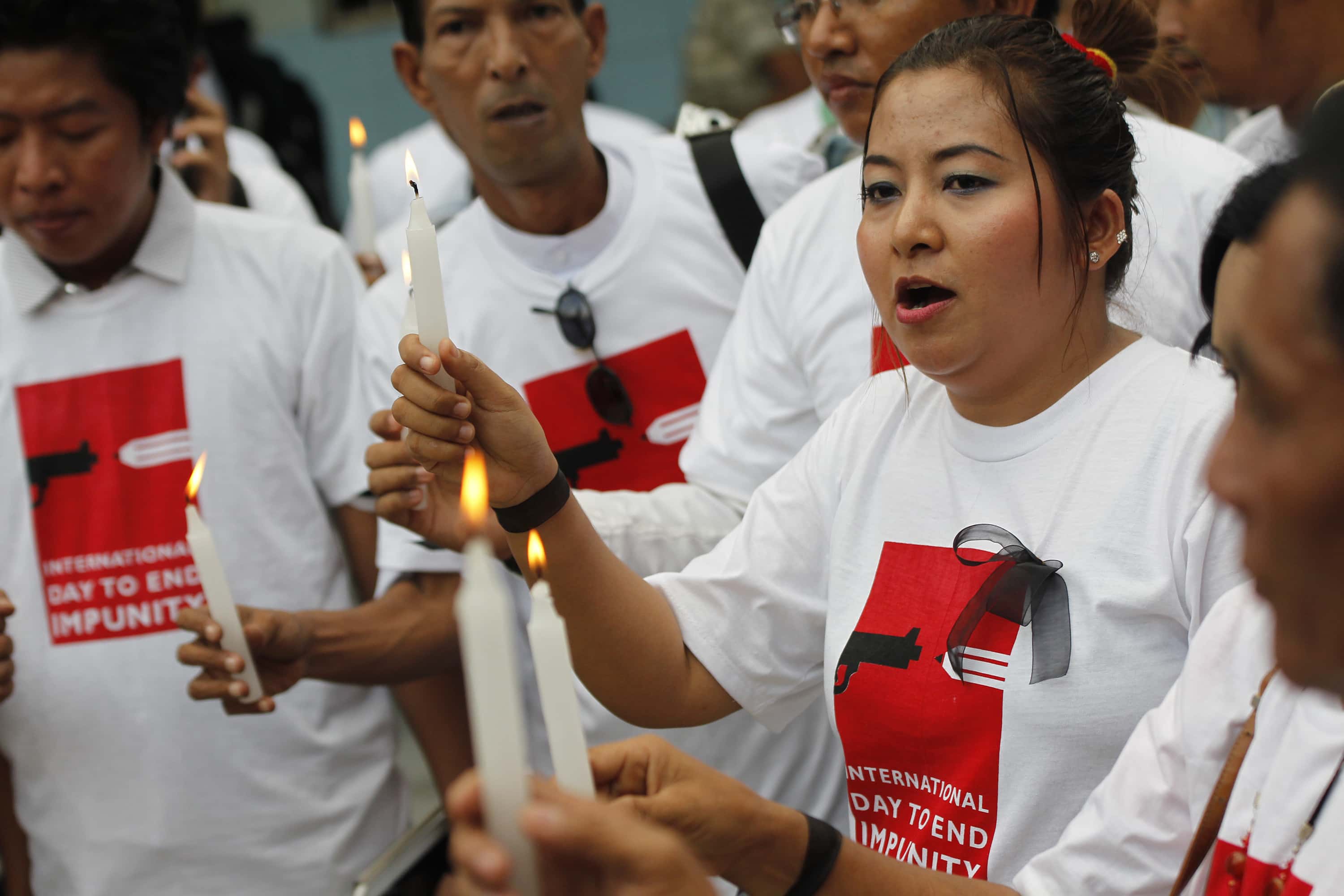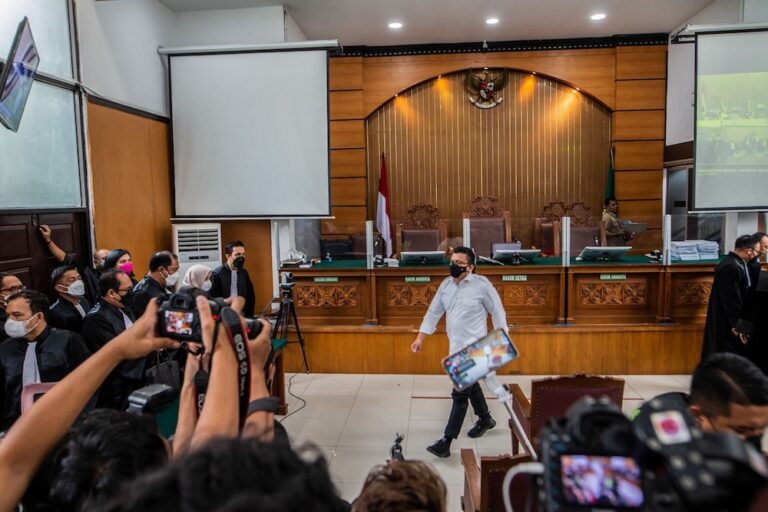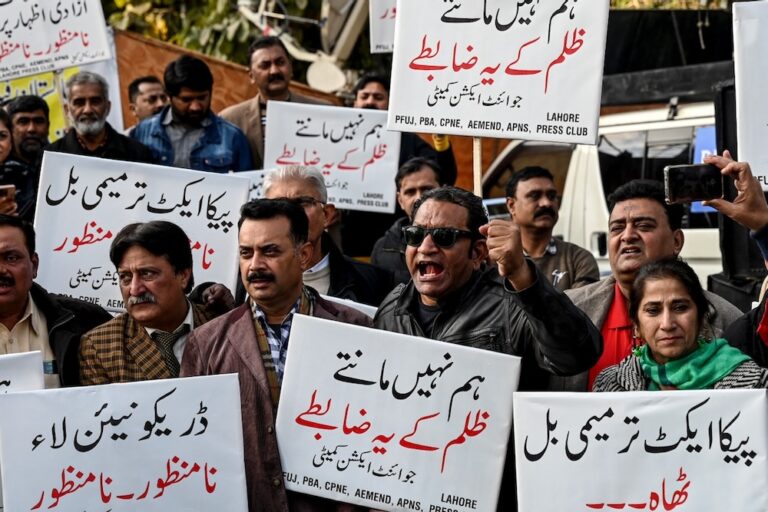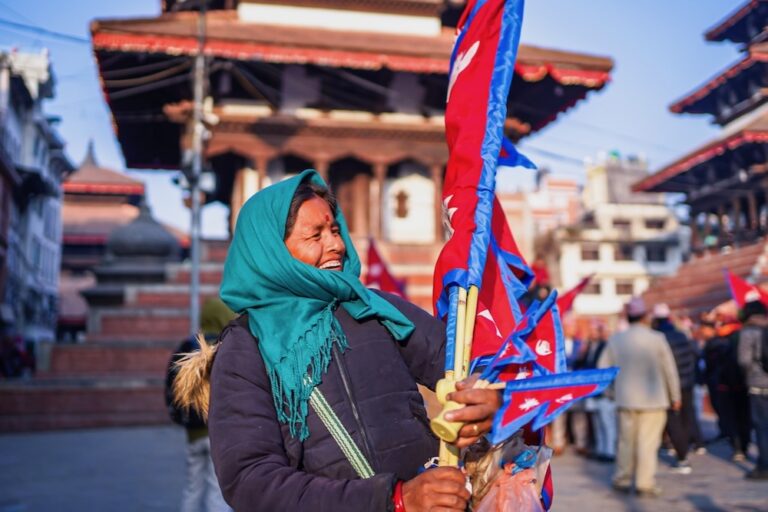Let us begin addressing the issue of violence against journalists by bringing closure and justice to families of the 58 Ampatuan Massacre victims, SEAPA stresses.
This statement was originally published on seapa.org on 20 November 2014.
In September this year, the Human Rights Council at its 27th session adopted a resolution that spelt out the actions needed to combat crimes against journalists. The document is impressive as it calls on states to adopt best practices to end the impunity in journalists’ killings worldwide, a problem so serious that the United Nations has dedicated November 2 every year as the global day on the safety of journalists. The brutal killing of Burmese freelance journalist Aung Kyaw Naing in October this year, while in military custody, is a stark reminder that the state is still a perpetrator when it comes to violence against the media and human rights defenders.
None of the 11 Southeast Asian governments saw it fit to place their names as sponsors to the resolution, and other UN documents related to the issue of safety of journalists. It is not surprising though. One of the expectations of the latest resolution is that governments should report to the UN body on the crimes committed against journalists and what they have done to end impunity. The resolution also acknowledges the importance of reporting on the issue in the Universal Periodic Review (UPR). Given that SEA governments have done poorly when it comes to being accountable on human rights, the lack of leadership was business as usual.
But ignoring the violence against journalists of all backgrounds, including the freelancers and netizens, is no longer accepted as business as usual. In other words, striving to create a safe environment for professional and citizens-based media is the new global norm. States are asked to set up special mechanisms to facilitate investigations into and the prosecution of those who have harmed journalists. Incidents of media killings need to be investigated fairly and thoroughly at the very least.
This will undoubtedly be a challenge for states that have not only ignored the calls to improve their overall human rights record, but are going the extra mile to discredit media killings as a result of unethical practices or personal disputes. This so-called critical view of the media behaviour is not only irresponsible of any government, it is outright dangerous to suggest that there are brands of journalists who are not deserving of protection or justice.
Philippines President Benigno Aquino III said in a media interview on August 27, just weeks before the September HRC resolution, that many media killings in the country were not related to journalistic work. The police have added to this claim by saying that it was doubtful in a number of the cases if the victims were even ‘real’ journalists. Most media freedom advocates would say that there is usually a trail of threats and intimidation before killings occur and only a transparent and fair process would be able to set the record straight.
Recent cases of killings in Cambodia have also drawn the attention to lapses among certain journalists who abuse their positions to gain money to suppress stories. There are legitimate concerns of the media, where the victims may have been extorting from companies or were unethical in their conduct. In cases like these, however, there are ways to report on corrupt journalists. Killing, and subsequently, the failure to investigate the killing, must never be accepted or condoned.
Media owners need to be reined in to ensure that they provide adequate remuneration and protections to journalists, no matter how small the outlets are. This has to be the minimum standard so that journalists do not become dependent on external contributions for stories they write or don’t write, and are placed under undue risk.
The Philippine president’s dismissal did little to alter the record that over 20 journalists have been killed in the line of duty under his four-year watch so far, according to the Center for Media Freedom and Responsibility. In fact, in the context of the UN resolutions, President Aquino will be seen as recklessly defiant, as a leader who is willing to give up the gains achieved in press freedom because of his lack of political will to end the impunity in media killings.
There is no glamour in a government that sits back and accuses the media of its failings and does little to protect its citizens. But if the experience of holding governments accountable on other rights are any indication, we have a long way to go to make the UN resolutions on safety of journalists meaningful and with impact.At least, the process has begun at the global, regional and national levels and it is up to us to use the opportunities available to push for a more rigorous action to stop the killings of journalists.
Let us begin by bringing closure and justice to families of the 58 Ampatuan Massacre victims.



